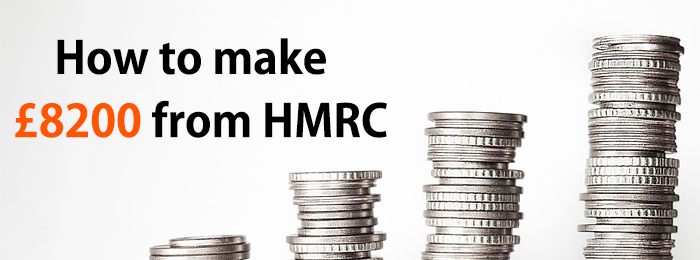
We are all aware of good OL VAT and understand the importance of keeping accurate VAT records to make sure the correct amount of VAT is paid to HMRC. Our today’s tax tip will focus on the scheme that may allow you to generate extra revenue from HMRC (based on your circumstances) and reduce your time hassling with VAT records.
There are a number of VAT schemes available, one of which is called Flat Rate VAT scheme. In simple words, Flat rate VAT scheme means that you charge 20% VAT to your customers but pay reduced percentage to HMRC. You cannot claim back the VAT paid to your suppliers (I will use an example to make it easier to understand). There are certain conditions apply such as limited cost trader and thresholds which we will cover in another article.
(In order to keep simplicity we are assuming that the company in the following example charge/pay VAT on all items and is not a limited cost trader. In real situations some sale/purchase items may be zero rated)
For e.g. ABC Limited is a small company with a Turnover of £120,000 including VAT. They are a convenience store Retailing food, confectionary and tobacco. This means that ABC charges £20,000 VAT to their customers (VAT rate of 20%).
ABC limited pays £60,000 excluding VAT to their suppliers out of which a number of items does not have VAT. Let’s assume they pay VAT on most of the items and pay £7,000 in VAT to their suppliers.
If using the normal VAT scheme, the result will be a payment of £13,000 to HMRC (£20,000 VAT charged to their customers and £7000 paid to their suppliers).
Let’s consider that ABC limited accountant advised their client to use the flat rate VAT scheme. This means that ABC limited will charge customers 20% VAT but will only pay 4% to HMRC (The reduced percentage depends upon the type of business you are in and for the type of business discussed in the example the percentage is 4%). ABC will not be able to claim the £7,000 VAT paid to its suppliers as shown in the example.
The net payment to HMRC, using flat rate scheme, will be £4800 (£120,000 into 4%)
Comparison:
Normal VAT scheme – £13,000 due to HMRC
Flat rate scheme – £4,800 due to HMRC
Net savings – £8,200
P.S. If you are newly VAT registered, you can reduce the Flat rate percentage by 1% for the first year, which means that ABC limited would have saved an extra £1200. This will result in the net savings of £9400 in the first year.
Disclaimer: The example used above is for illustrative purposes and there are many instances where flat rate scheme is not beneficial for a particular business. It is therefore advisable that professional advice is sought as it may differ based on your circumstances.
Benefits of using the Flat Rate Scheme
Using the Flat Rate Scheme can save you time and smooth your cash flow. It offers these benefits:
You don’t have to record the VAT that you charge on every sale and purchase, as you do with standard VAT accounting. This can mean you spending less time on the books, and more time on your business. You do need to show VAT separately on your invoices, just as you do for normal VAT accounting.
- A first year discount. If you are in your first year of VAT registration you get a one per cent reduction in your flat rate percentage until the day before the first anniversary you became VAT registered.
- Fewer rules to follow. You no longer have to work out what VAT on purchases you can and can’t reclaim.
- Peace of mind. With less chance of mistakes, you have fewer worries about getting your VAT right.
- Certainty. You always know what percentage of your takings you will have to pay to HMRC.
Potential disadvantages of using a Flat Rate Scheme
The flat rate percentages are calculated in a way that takes into account zero-rated and exempt sales. They also contain an allowance for the VAT you spend on your purchases. So the VAT Flat Rate Scheme might not be right for your business if:
- you buy mostly standard-rated items, as you cannot generally reclaim any VAT on your purchases
- you regularly receive a VAT repayment under standard VAT accounting
- you make a lot of zero-rated or exempt sales
Please note: This doesn’t not constitute as tax advice. Professional advice must be sought before any tax planning. The tax planning may differ based on your individual circumstances.
